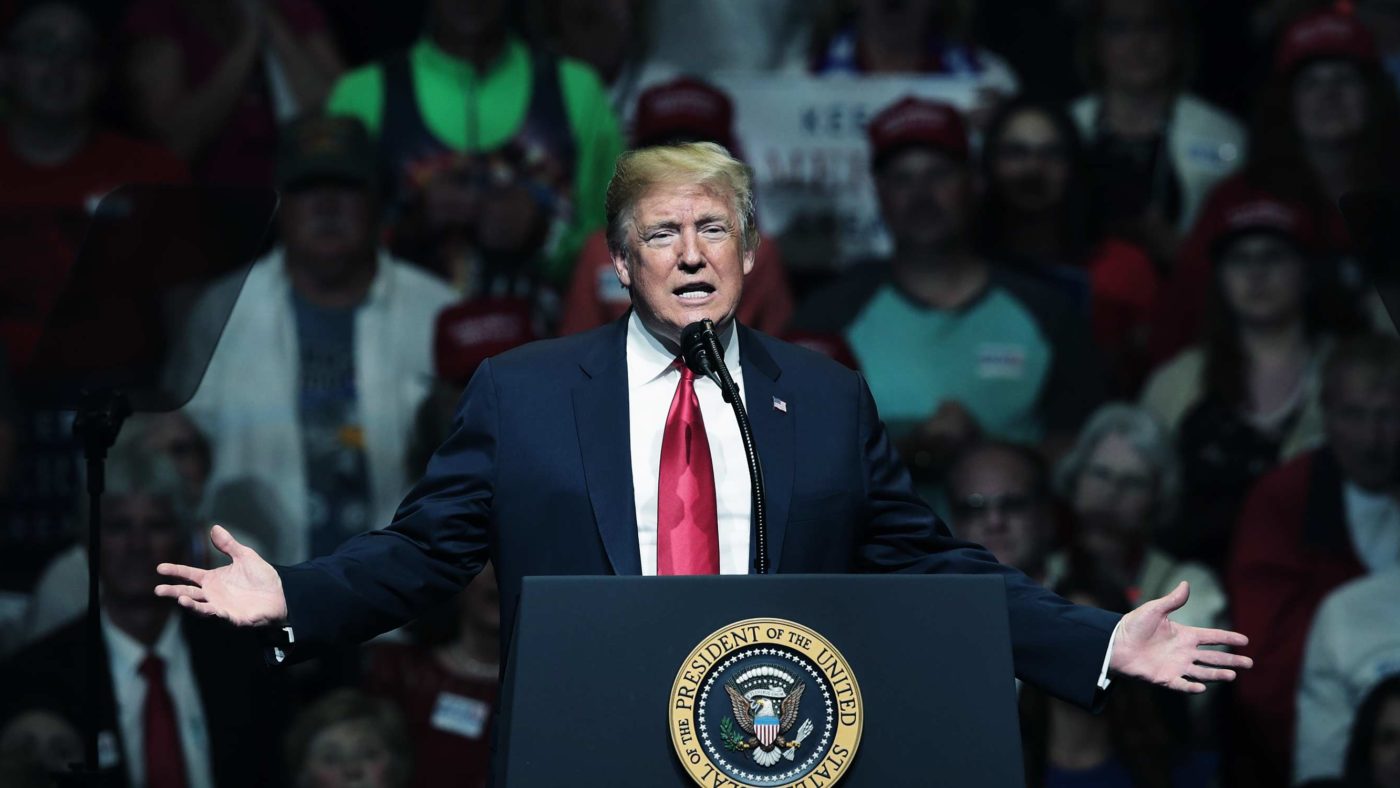There we have it. The date and time for Donald Trump’s meeting with the Kim Jong-un are set.
It was announced when Trump’s newly appointed secretary of state, Mike Pompeo, returned from Pyongyang with three Americans who had been imprisoned in North Korea. The summit – an outbreak of diplomacy after the two countries traded threats last summer – will occur on June 12, in Singapore.
So far, so good. Though we must be sceptical of all apparent progress in relations between the world’s sole superpower and the hermit kingdom, something genuine appears on the horizon.
The North Korean and South Korean leaders have met, sharing a symbolic handshake and making outsized promises of a new era of prosperity and peace.
Since good things cannot exist in isolation, and talk of peace brings talk of prizes. The spectre of the Nobel Committee hovers, like an unwelcome guest, over discussion of a positive future on the Korean peninsula. As if to demonstrate how aberrant our era is, the prospect of Donald Trump becoming a Nobel laureate is semi-seriously brought up in consciously serious conversation.
The man himself has been formally nominated for the Nobel Peace Prize, something even his most ardent advocates could only have predicted with an ironic gesture more than a year ago. That said, nomination is just that and nothing more. Even Vladimir Putin – not widely noted for his contribution to peacemaking – has been nominated this year.
Nobel candidates are often assessed holistically. Despite the legitimate argument in favour of Trump’s candidacy which one could make over his role in precipitating Korean talks, his hopes for recognition have undeniably suffered as a result of his withdrawal from the Joint Comprehensive Plan of Action (JCPOA) deal with Iran.
In any case, the Nobel Committee was already unlikely to give Trump a prize for his efforts with North Korea.
After all, merely participating in summits is not sufficient to merit recognition. We must not, in all the excitement of things, get ahead of ourselves. Peace is far from a done deal. Talks alone mean little and even if something momentous were to happen, Trump’s blustering tone and general lack of diplomatic polish would not likely be something the Nobel Committee would want to acknowledge.
It is true that the Committee has made less justifiable decisions; they have given prizes to worse. That Henry Kissinger won a Nobel Peace Prize in 1973 (for securing a peace in Vietnam which did not hold) remains a less than glowing endorsement of the process. Kissinger’s being honoured is more controversial now than even giving the prize to Trump would be.
And that is not all. The Committee gave the 2009 prize to Barack Obama, apparently for simply being himself and not his predecessor. Obama was praised for his reputedly “extraordinary efforts to strengthen international diplomacy and cooperation between peoples”, with the honour being bestowed before he did anything and before, indeed, his presidency turned out to be such a grave disappointment.
Apparently, the Committee regrets the Obama prize. This at least suggests that it is learning from its mistakes, though the main lesson it has drawn from that episode, it seems, is too general: not to give anything to a sitting US president, in case they fail to live up to expectations later in their term.
Trump’s withdrawal from the Iranian nuclear deal could be almost calculated to annoy the Committee. US withdrawal is seen as a repudiation of the particularly European multilateralism which America neither needs nor, in reality, cares all that much about.
The fact that Trump has been cheered by Saudi Arabia, Israel’s prime minister and other American allies in the Middle East makes things even worse in the eyes of Europe and thus the Committee. The abrupt manner in which Trump announced his decision was less than well received by many in a place where decorousness and adherence to procedure are more important than so much else.
Despite any optimism the upcoming Trump-Kim summit might merit, the American president is not a figure the Committee is likely to consider suitable for commendation. He’s too vulgar, too impulsive, and his modus operandi is too contrary to prevailing ideas of diplomatic best practice. Even if his nuclear threats and Twitter braggadocio have encouraged the North Koreans to the table, Trump will not get the credit, or the award, such an achievement would deserve.


